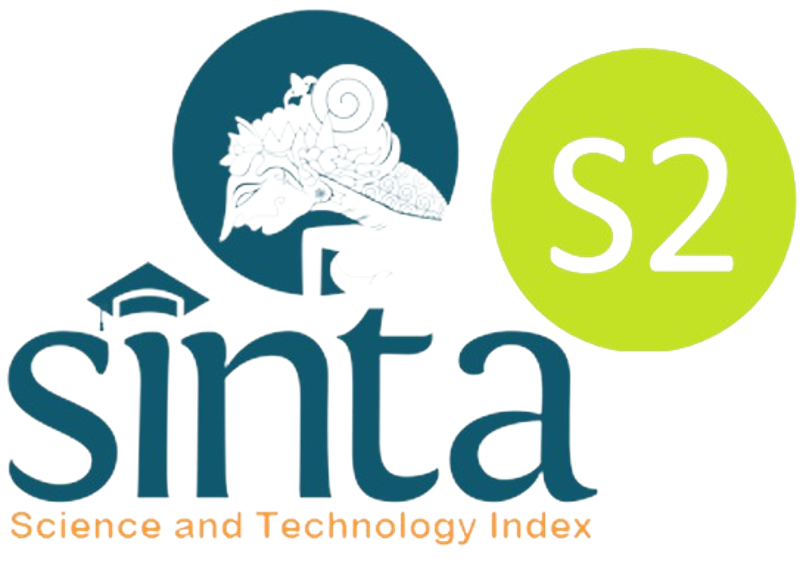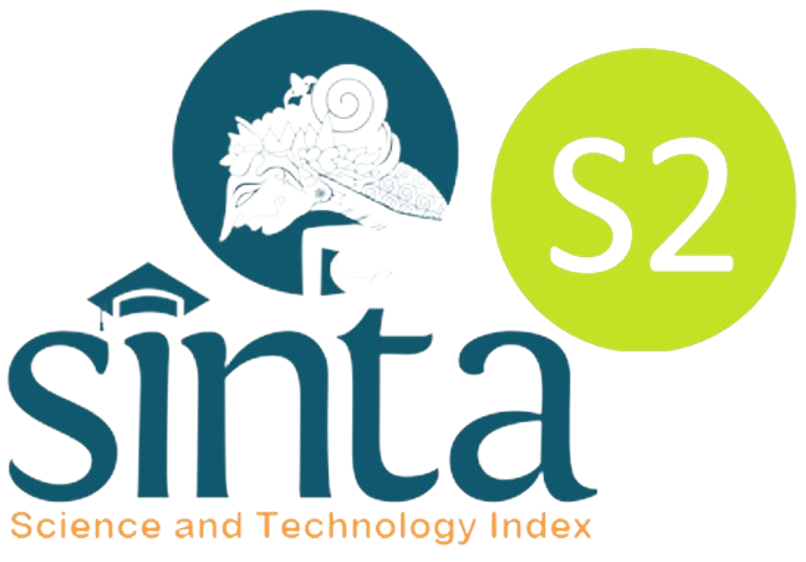Developing Learners' Digital Literacy through Guided Discovery Learning on the Matter of Work and Energy
DOI:
https://doi.org/10.26740/jpps.v13n1.p42-53Keywords:
Digital Literacy, Guided Discovery, Learning Outcomes , Teaching MaterialAbstract
Digital literacy is essential in educational field and digital society, but it has received less attention in schools. Objective: This paper will analyze the effectiveness of work and energy teaching materials through guided discovery learning to improve students' digital literacy. Method: This study applied a one-group pretest and posttest design on 26 secondary level students of grade X. Data collection techniques used digital literacy questionnaire instruments, learning outcomes tests, and interviews. Results: The results showed that the n-gain of students’ digital literacy and learning outcomes were medium criteria and high criteria, respectively. Thus, the developed physics teaching materials through guided discovery learning are effective for improving students' digital literacy. Novelty: Previous studies have not used guided discovery on work and energy teaching material to train students' digital literacy.
Downloads
References
Alam, A. (2022). Mapping a sustainable future through the conceptualization of transformative learning framework, education for sustainable development, critical reflection, and responsible citizenship: an exploration of pedagogies for twenty-first-century learning. ECS Transactions, 107(1), 9827. https://doi.org/10.1149/10701.9827ecst
Alyspa, J. R., Suyidno, S., & Miriam, S. (2022). Kelayakan problem-based learning dipadu STEM untuk meningkatkan literasi digital peserta didik. Journal of Banua Science Education, 3(1), 46-60. https://doi.org/10.20527/jbse.v3i1.141
Arifah, N., & Azis, N. (2022). Pengembangan modul pembelajaran fisika berbasis kontekstual terintegrasi QR code untuk meningkatkan literasi digital siswa. Indonesian Journal of Natural Science Education, 5(2). https://doi.org/10.31002/nse.v5i2.2620
Astra, I. M., & Halimah, S. I. (2022, July). The development e-learning assisted by flashcard to improve students scientific literacy in high school on the kinetic theory of gases materials. Journal of Physics: Conference Series, 2309(1), 012096. https://doi.org/10.1088/1742-6596/2309/1/012096
Dewi, C. A., Awaliyah, N., Fitriana, N., Darmayani, S., Setiawan, J., & Irwanto, I. (2022). Using an android-based e-module to improve students' digital literacy on chemical bonding. International Journal of Interactive Mobile Technologies, 16(22). https://doi.org/10.3991/ijim.v16i22.34151
Ekawati, E. Y., & Prastyo, A. (2022, December). Optimization of TPACK-based project learning in micro-teaching courses in physics education study programs during the pandemic. Journal of Physics: Conference Series, 2392(1), 012035. https://doi.org/10.1088/1742-6596/2392/1/012035
Faridah, N. R., Afifah, E. N., & Lailiyah, S. (2022). Efektivitas model pembelajaran project based learning terhadap kemampuan literasi numerasi dan literasi digital peserta didik Madrasah Ibtidaiyah. Jurnal Basicedu ,6(1), 709-716. https://doi.org/10.31004/basicedu.v6i1.2030
Felitasari, A., & Rusmini, R. (2022). Development of e-worksheets assisted by live worksheets to improve science process skills and collaboration on chemical equilibrium materials. Scientiae Educatia: Jurnal Pendidikan Sains, 11(1), 10-23. http://dx.doi.org/10.24235/sc.educatia.v11i1.10235
Haryanto, H., Ghufron, A., Suyantiningsih, S., & Kumala, F. N. (2022). The correlation between digital literacy and parents' roles towards elementary school students' critical thinking. Cypriot Journal of Educational Sciences, 17(3), 828-839. https://doi.org/10.18844/cjes.v17i3.6890
Hassan, A. A., Zaki, Z. A. M., Kamil, A. I. M., Nasir, N. M., & Ejau, R. L. (2022, October). Teaching legal research and studies for built environment students in Malaysian Universities. IOP Conference Series: Earth and Environmental Science, 1067(1), 012075. https://doi.org/10.1088/1755-1315/1067/1/012075
Jamaluddin, J., Jufri, A. W., & Ramdani, A. (2023). Effect of e-readiness skills, metacognitive awareness, and biological literacy on the high school students' misconceptions. Jurnal Pendidikan IPA Indonesia, 12(2). https://doi.org/10.15294/jpii.v12i2.37536
Khan, M., Khan, N., Begum, S., & Qureshi, M. I. (2023). Digital future beyond pandemic outbreak: Systematic review of the impact of COVID-19 outbreak on digital psychology. Foresight, 12(1), 1-24. https://doi.org/10.1108/FS-02-2021-0044
Laily, I. F., & Binasdevi, M. (2023). Analysis of the student's digital literacy skills through blended learning at madrasah ibtidaiyah in the post-COVID-19 pandemic. Al Ibtida: Jurnal Pendidikan Guru MI, 10(1), 134-142. http://dx.doi.org/10.24235/al.ibtida.snj.v10i1.13516
Leitenstorfer, A., Moskalenko, A. S., Kampfrath, T., Kono, J., Castro-Camus, E., Peng, K., ... & Cunningham, J. (2023). The 2023 terahertz science and technology roadmap. Journal of Physics D: Applied Physics, 56(22), 223001. https://doi.org/10.1088/1361-6463/acbe4c
Lukman, I., Silalahi, A., & Silaban, S. (2022, February). Interactive learning media innovation using Lectora inspires solubility and solubility product materials. Journal of Physics: Conference Series, 2193(1), 012067. https://doi.org/10.1088/1742-6596/2193/1/012067
Nasbey, H., Serevina, V., Rokhimah, M., & Purwani, B. (2022, July). Development of online learning tools for elasticity materials using the 7e learning model in class XI senior high school. Journal of Physics: Conference Series, 2309(1), 012052. https://doi.org/10.1088/1742-6596/2309/1/012052
Pratiwi, M. K., & Indana, S. (2022). Pengembangan e-modul berbasis QR-Code untuk melatihkan kemampuan literasi digital siswa pada materi perubahan lingkungan. Berkala Ilmiah Pendidikan Biologi (BioEdu), 11(2), 457-468. https://doi.org/10.26740/bioedu.v11n2.p457-468
Putri Perwita, D., Oktrisma, Y., Sri Kandika, P., & Studi Magister Pendidikan Fisika Pascasarjana UNP, P. (2019). Analisis buku ajar fisika sma kelas XI berdasarkan pada komponen literasi era digital. Dalam Physics Education, 12 (3), 1-14. http://dx.doi.org/10.24036/7744171074
Rahayu, T., & Mayasari, T. (2018). Profil kemampuan awal literasi digital dalam pembelajaran fisika siswa SMK Kota Madiun. Dalam Seminar Nasional Quantum, 25(2), 21-34. https://seminar.uad.ac.id/index.php/quantum/article/view/294
Rahim, F. R., Sari, S. Y., Sundari, P. D., Aulia, F., & Fauza, N. (2022, July). Interactive design of physics learning media: The role of teachers and students in teaching innovation. Journal of Physics: Conference Series, 2309(1), 012075. https://doi.org/10.1088/1742-6596/2309/1/012075
Rahmat, S. T., Muslim, S., & Sukardjo, M. (2023, September). Multimedia-based Learning for early childhood education. International Seminar and Conference on Educational Technology (ISCET 2022) (pp. 97-110). Atlantis Press. https://www.atlantis-press.com/article/125990766.pdf
Reilly, D., & Leopold, K. (2022). 'Next slide, please': developing students' digital literacy and online collaboration skillsets. Compass: Journal of Learning and Teaching, 15(1), 1-7. https://doi.org/10.21100/compass.v15i1.1276
Rini, R., Sukamto, I., & Hariri, H. (2022). The effect of self-directed learning on students' digital literacy levels in online learning. International Journal of Instruction, 15(3), 329-344. https://files.eric.ed.gov/fulltext/EJ1355635.pdf
Rizal, R. (2022). Could the digital literacy of preservice physics teachers be improved by the learning management system supported smartphone (LMS3) application in a physics online lecture? Physics Education, 58(2), 025004. https://doi.org/10.1088/1361-6552/aca864
Rosmiati, R., Liliasari, S., Tjasyono, B., & Ramalis, T. R. (2020). Physics pre-service argumentation to increase reflective thinking capabilities. Journal of Physics: Conference Series, 1521(2). https://doi.org/10.1088/1742-6596/1521/2/022038
Saputra, B., & Chaeruman, U. A. (2022). Technological pedagogical and content knowledge (tpack): analysis in design selection and data analysis techniques in high school. International Journal of Instruction, 15(4). https://doi.org/10.29333/iji.2022.15442a
Satriawan, M., Rosmiati, R., Saputra, O., & Habibbulloh, M. (2022). Improving Critical thinking skills (CTS) of students through wave energy learning project (WELP) on environmental physics lecture. Journal of Physics: Conference Series, 2392(1), 01130. https://doi.org/10.1088/1742-6596/2392/1/012038
Shiyamsyah, F. S. F., & Yuliani, Y. (2022). Pengembangan e-book interaktif pada materi respirasi seluler untuk melatihkan kemampuan literasi digital siswa SMA kelas XII. Berkala Ilmiah Pendidikan Biologi (BioEdu), 11(2), 492-501. https://doi.org/10.26740/bioedu.v11n2.p492-501
Sinon, I. L. S., Sapari, K. R., & Allo, A. Y. T. (2022, December). The influence of guided inquiry learning model through experimental method for understanding the concept of students in calorie material. Journal of Physics: Conference Series, 2392(1), 012006. https://doi.org/10.1088/1742-6596/2392/1/012006
Valko, N. V., & Osadchyi, V. V. (2022, June). Review of the state of computer vision technologies development in the world and Ukraine. Journal of Physics: Conference Series, 2288(1), 012002. https://doi.org/10.1088/1742-6596/2288/1/012002
Wahyuni, S., Wulandari, E. U., Fadilah, R. E., & Yusmar, F. (2022). Pengembangan mobile learning module berbasis android untuk meningkatkan literasi digital siswa SMP. LENSA (Lentera Sains): Jurnal Pendidikan IPA, 12(2), 125-134. https://doi.org/10.24929/lensa.v12i2.266
Wahyuni, Z. A., Pradipta, A., Khaira, U., & Mareza, A. (2022, July). Validity and practicality of guided discovery learning-based chemistry e-module for class XII High School. Journal of Physics: Conference Series, 2309(1), 012092. https://doi.org/10.1088/1742-6596/2309/1/012092
Wardana, L. A., Rulyansah, A., Izzuddin, A., & Nuriyanti, R. (2022). Integration of digital and non-digital learning media to advance life skills of elementary education students post-pandemic COVID-19. Pegem Journal of Education and Instruction, 13(1), 211-222. https://files.eric.ed.gov/fulltext/EJ1385654.pdf
Ye?ilyurt, E., & Vezne, R. (2023). Digital literacy, technological literacy, and internet literacy as predictors of attitude toward applying computer-supported education. Education and Information Technologies, 28(1), 1-27. https://doi.org/10.1007/s10639-022-11311-1
Downloads
Published
How to Cite
Issue
Section
License
Copyright (c) 2023 JPPS (Jurnal Penelitian Pendidikan Sains)

This work is licensed under a Creative Commons Attribution-ShareAlike 4.0 International License.
 Abstract views: 364
,
Abstract views: 364
, PDF Downloads: 306
PDF Downloads: 306












